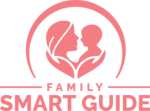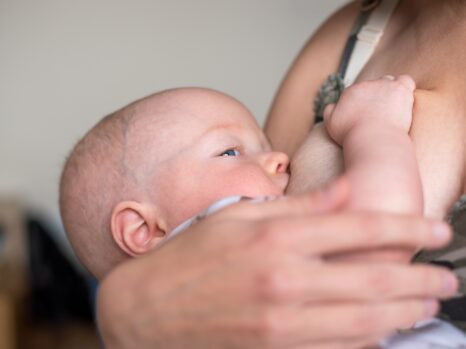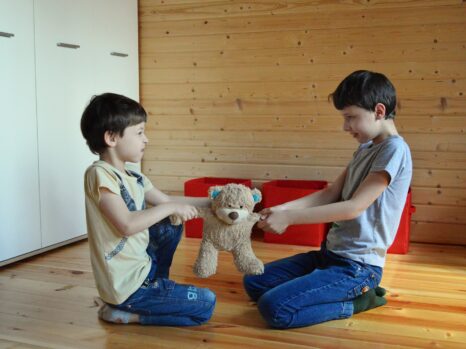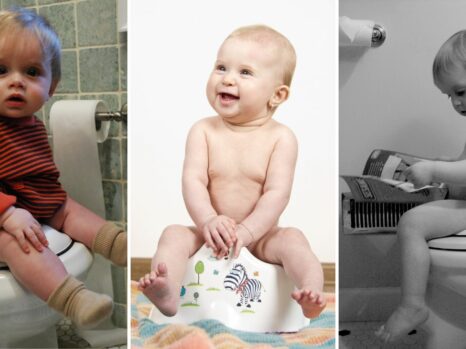Breast leaking, also known as lactation, is a natural and normal process that occurs in women who are breastfeeding.
It is the release of milk from the breast, before, during, or after breastfeeding.
Breast leaking can happen to any breastfeeding mother and is a sign that the body is producing milk to nourish the baby.
However, it can also be a source of frustration and discomfort for some mothers. It’s important to understand the causes and symptoms of breast leaking and to know that there are ways to manage and prevent it.
In this article, we will explore the various factors that can lead to breast leaking, and provide tips and tricks on how to stop breast milk from leaking.
Whether you are a first-time mother or a seasoned pro, understanding breast leaking can help make breastfeeding a more comfortable and enjoyable experience for both you and your baby.
What Causes Breasts to Leak?
Breastfeeding is a beautiful and natural way for mothers to nourish their babies, but it can also come with its own set of challenges. One of those challenges is breast leakage. But what causes breasts to leak?
There are several different factors that can contribute to breast leakage. The first and most obvious is hormonal changes that occur during pregnancy and breastfeeding.
As a woman’s body prepares to lactate, hormones such as prolactin and oxytocin are released, which can cause the milk-producing cells in the breasts to fill with milk.
Another factor that can cause breast leakage is the overproduction of milk. Some women may produce more milk than their baby needs, which can lead to engorgement and leakage.
This can happen due to a variety of factors, such as a strong let-down reflex or an overactive milk ejection reflex.
Stress and fatigue can also play a role in breast leakage. When a woman is feeling stressed or tired, her body produces the hormone cortisol, which can interfere with the milk production process and lead to leakage.
Finally, certain medications, such as birth control pills or antidepressants, can also cause breast leakage. These medications can interfere with the hormones that regulate milk production, leading to leakage.
While breast leakage can be frustrating and uncomfortable, it is important to remember that it is a normal and natural part of the breastfeeding process.
It’s a good idea to use breast pads or nursing pads to protect your clothes and to talk to your healthcare provider if you are experiencing excessive leakage or other breastfeeding concerns.
It’s also important to remember that breast leakage is not always a sign of overproduction, it can also be a sign of an improper latch or a blocked duct. It’s always better to consult a lactation consultant to properly address the issue.
Signs and Symptoms of Breast Leaking
There are several signs and symptoms of breast leakage that women may experience while breastfeeding. Some of the most common include:
- Wet or stained clothing
Leakage from the breasts can cause a woman’s clothing to become wet or stained with milk.
- Swelling or engorgement
When the breasts become full of milk, they may become swollen and hard to the touch.
- Milk leakage while not breastfeeding
Some women may experience leakage from their breasts even when they are not breastfeeding or pumping.
- Tingling or itching sensation in the breast:
As the milk builds up in the breast, a woman may experience a tingling or itching sensation.
- Discomfort or pain in the breast
Leakage can cause discomfort or pain in the breast, particularly if the milk is not being removed frequently enough.
- Sore or cracked nipples
Leakage can also cause sore or cracked nipples, which can make breastfeeding more difficult.
- Lumps or blockages in the breast
Leakage can lead to blockages in the milk ducts, which can cause lumps or hard spots in the breast.
If you are experiencing any of these signs and symptoms of breast leakage, it’s important to speak with a healthcare provider or lactation consultant to determine the underlying cause and develop a plan to manage the leakage.
Tips and Tricks for Dealing with Breast Leaking
When you notice milk leaking, it’s a sign that you’re successfully supplying milk for your baby – a true accomplishment!
Therefore, it’s not surprising that many new mothers feel more confident in their breastfeeding abilities when they experience leaking.
If you find that leaking milk is a difficult and embarrassing situation, here are a few useful tips to help you stop it:
- Wear a supportive nursing bra during the day and a sleep bra at night to help keep your breasts supported.
- Try using breast pads to absorb any leakage.
- Nurse or pump on a schedule to help regulate your milk production and reduce the likelihood of leakage.
- Avoid caffeine, which can increase milk production and cause leakage.
- Try using a cold compress on your breasts to help reduce engorgement and leakage.
- Try massaging your breasts while nursing or pumping to help empty them completely.
- Practice good posture to help keep your breasts supported and reduce leakage.
- Avoid clothing that is tight around the chest, which can put pressure on the breasts and cause leakage.
- Try using a hands-free pumping bra to allow you to pump without having to hold the flanges in place.
It’s important to note that it’s normal for some breast milk leakage to occur, especially in the first few weeks after giving birth.
If the leaking is excessive or causing discomfort, it’s best to consult a lactation consultant or healthcare provider for further advice.
Leaking Breast Milk While Not Pregnant
Breast milk leaking while not pregnant is a phenomenon that affects many women and can be caused by a variety of factors.
Understanding the underlying causes can help women to better manage this issue, and seek appropriate support if needed.
One of the most common causes of breast milk leaking while not pregnant is hormonal changes.
The hormones responsible for milk production, prolactin, and oxytocin, can be triggered by a variety of stimuli such as touching or massaging the breasts, hearing a baby cry, or even thinking about breastfeeding.
These hormones can cause the breasts to leak milk, even if a woman is not pregnant or breastfeeding. This is known as galactorrhea.
Breast milk leaking while not pregnant can also be caused by psychological factors such as stress, anxiety, and depression.
Emotional stress can lead to an increase in the production of hormones such as cortisol and prolactin, which can cause the breasts to leak milk.
Final Words
Stopping breasts from leaking is not always an easy task, but with the right knowledge, support, and determination, it can be done.
Remember to be patient and kind to yourself, breastfeeding is a challenging but rewarding journey, and it’s important to remember that it’s not just about the baby, it’s about the mother too.
And don’t forget that you’re doing an amazing job, every time you breastfeed, you’re providing your baby with the best possible nutrition and love.














